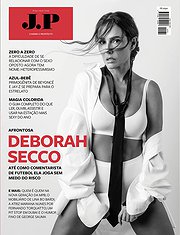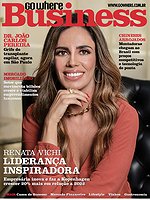
JP
O TOQUE QUE ATENUA O ESTRESSE DO DIAGNÓSTICO
MASSAGE AND MEDICINE
BY RENATA FRANÇA
THE TOUCH THAT EASES THE STRESS OF DIAGNOSIS
Digestive system surgeon and coloproctologist, Angelita Gama, is among the top 2% of the most prominent scientists in the world and among the doctors who have contributed the most to the development of science, according to Stanford University in the USA. The Brazilian researcher is a reference in her field and is an emeritus professor at the University of São Paulo (USP). In a conversation with Renata França, the creator of the Miracle Touch massage, she spoke about her journey, specialty, and how massage serves as an adjunct to patient well-being. Check out the interview, also available on SPARENATAFRANCA.COM
RENATA FRANÇA:
After entering medical school at 19, how did you choose the specialty you work in?
ANGELITA GAMA: I opted for digestive system surgery after studying with Dr. Alípio Corrêa Netto. In 1962, after finishing my residency, I attended an international congress in São Paulo on diseases of the intestine, rectum, and anus, where I was enthused by the team from St. Barts Hospital in England. I started sending letters requesting an internship, and after a while, they accepted me. I was the first female to intern there.
RF: You are on the list of the world's most influential scientists.
What achievement led to this recognition?
AG: I think it was when I understood that rectal cancer responds very well to radiotherapy and chemotherapy before surgical planning. The medical and ethical norm was to operate on all patients after radiotherapy, but I began to meticulously follow up with the patient, examining and performing endoscopy without operating immediately. This strategy was dubbed by an English friend as Watch and Wait.
It was heavily contested at the beginning, but today its acceptance is global, with works on an international scale.
RF: Does colon cancer affect more men or women?
AG: There is no difference. Currently, the disease affects any sex and age. In fact, we have treated many people under 40 years old.
RF: What are the chances of cure these days?
AG: If the individual undergoes colonoscopy, they will not have cancer.
If the patient is operated on when the cancer is early and limited to the intestine wall, the chances of cure are above 90% in five years.
When it's a case of metastasis, a cure is almost impossible. Therefore, we have to treat it before this stage.
RF: Is it possible to prevent the disease?
AG: Colonoscopy is a form of prevention.
The idea is to start screening at 40 years old when there are cases in the family. Those without a history should start at 50.
RF: What is your opinion on massage for patients with neoplasia?
AG: Receiving a cancer diagnosis is always very stressful.
Massage is very interesting because it helps relieve tension, and this relaxation is very beneficial for the patient.
RF: Do you recommend massage for your patients?
AG: I recommend physiotherapy followed by a massage. In the case of edematous patients, it helps a lot. At the Oswaldo Cruz Hospital, patients have access to a professional already during the postoperative period, twice a week, which greatly aids in recovery.
RF: Are there any contraindications?
AG: Those with abdominal problems or in acute inflammatory processes should not receive massages. Apart from these cases, everyone can receive it. Massage relaxes, and this relaxation is part of the patient's health recovery.

